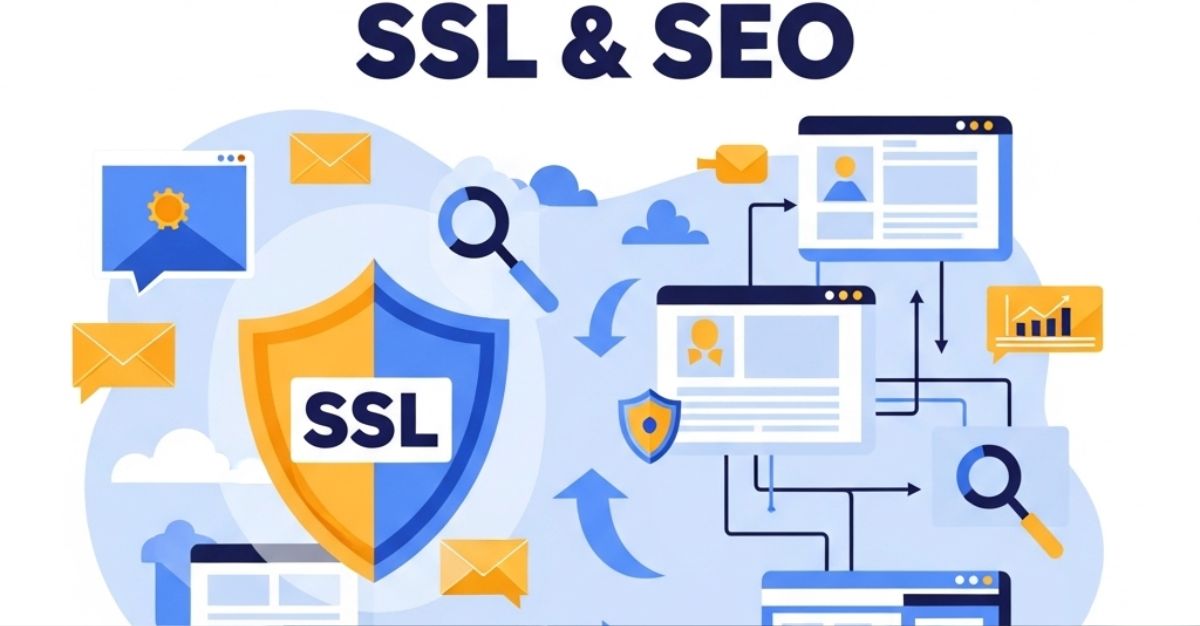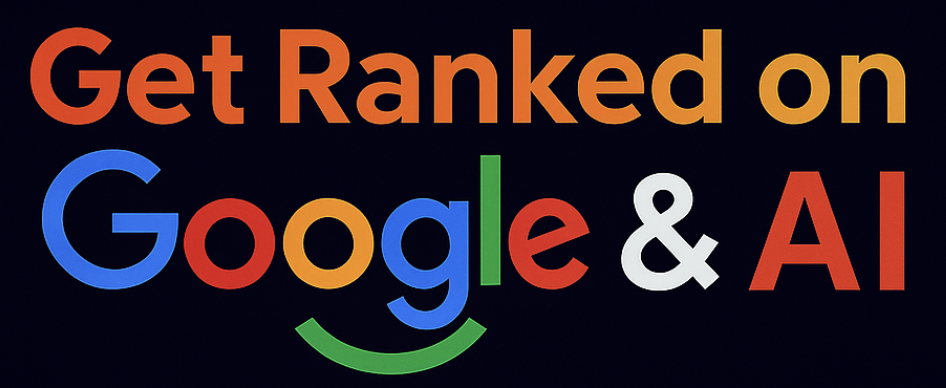According to recent data from Google’s Transparency Report, over 94% of Chrome browsing happens via HTTPS, highlighting users’ clear preference for secure, encrypted websites powered by SSL certificates.
Browsers like Chrome now visibly label non-HTTPS sites as “Not Secure,” affecting brand credibility. Moreover, Google also treats HTTPS as a direct ranking factor, impacting search visibility and user trust. In general, SSL certificate Malaysia has become an essential aspect for modern websites these days.
Table of Contents
Key Takeaways
- Over 94% of browsing on Chrome is done over HTTPS, showing the growing importance of SSL for user trust.
- An SSL certificate encrypts data, ensuring secure communication between users and your website.
- There are various types of SSL certificates, including DV, OV, EV, Wildcard, and Multi-Domain, each suited for different business needs.
- SSL is a confirmed Google ranking factor and supports SEO by improving user engagement and loading speed.
- A secure website signals professionalism, builds customer confidence, and strengthens your brand reputation.
- Without SSL, sites may be flagged as “Not Secure,” leading to reduced trust and lost opportunities.
What is an SSL Certificate?
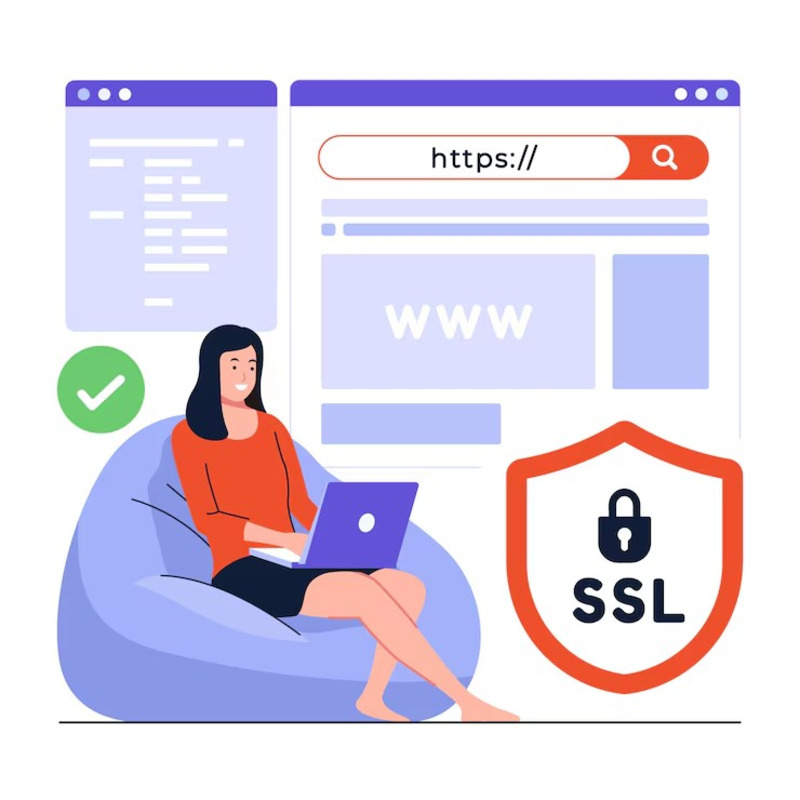
An SSL (Secure Socket Layer) certificate is a digital security protocol that encrypts data exchanged between a user’s browser and a website’s server.
It ensures that sensitive information such as passwords, payment details, and personal data remains private and protected during transmission.
When a site is secured with SSL, it displays “HTTPS” in the URL and a padlock icon in the browser address bar, serving as a clear trust indicator to users.
5 Types of SSL Certificates for Your Website Security
SSL certificates come in different types based on the level of validation and the number of domains or subdomains they cover. Choosing the right type depends on your website’s structure and the level of trust you want to establish with users.
| Type of SSL Certificate | Descriptions |
| Domain Validated (DV) | – Basic level of validation. – Verifies domain ownership only. – Quick and easy to issue. – Suitable for blogs or small websites without transactions. |
| Organisation Validated (OV) Image Credit: ClickSSL | – Verifies domain ownership and business identity. – Displays organisation information in the certificate details. – Offers a higher level of trust than DV. – Recommended for business or company websites. |
| Extended Validation (EV) Image Credit: Entorno Digital | – Highest level of validation and credibility. – Requires a rigorous verification process of the organisation. – Displays the company name in the address bar (in some browsers). – Ideal for e-commerce, financial services, or high-trust platforms. |
| Wildcard SSL Certificate Image Credit: NicSRS | – Secures a single domain and unlimited subdomains. – Useful for sites with multiple subdomains under one primary domain. |
| Multi-Domain (SAN) SSL Certificate Image Credit: Savvy Security | – Secures multiple domains under one certificate. – Best for businesses managing several websites across different domains. |
SSL and SEO: What’s the Connection?
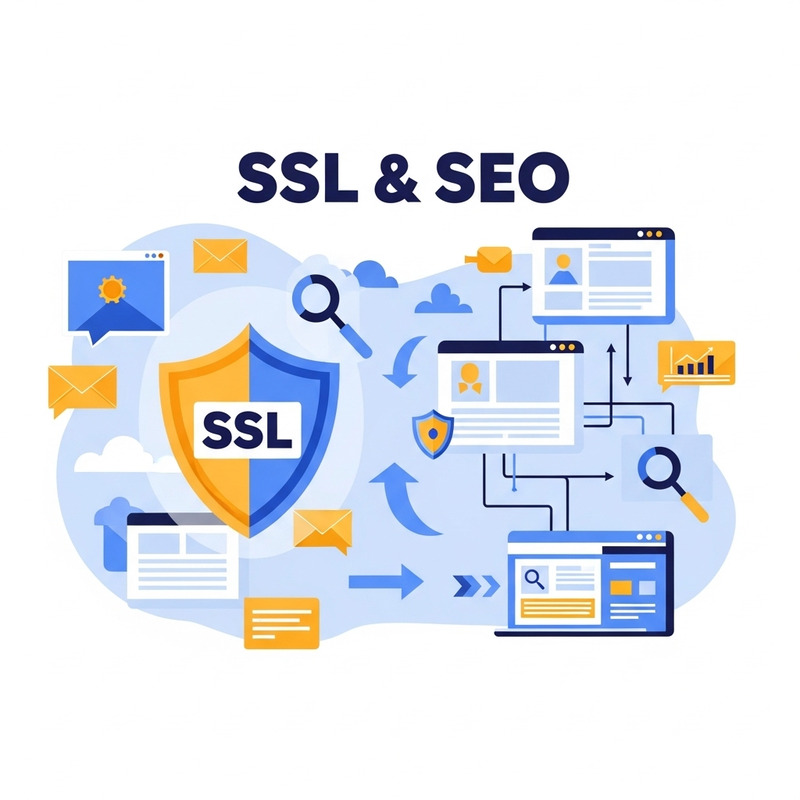
SSL certificates play a direct and measurable role in search engine optimisation (SEO). Google officially considers HTTPS a ranking signal, giving secure websites an advantage in search results.
Beyond rankings, SSL improves user experience metrics such as lower bounce rates and longer session durations as users are more likely to trust secure sites.
Secure websites also tend to load faster, positively contributing to Core Web Vitals and overall SEO performance. On the other hand, browsers like Chrome label non-HTTPS sites as “Not Secure,” which can reduce user confidence, lower click-through rates, and weaken a site’s visibility.
How SSL Certificates Add Credibility to Your Brand
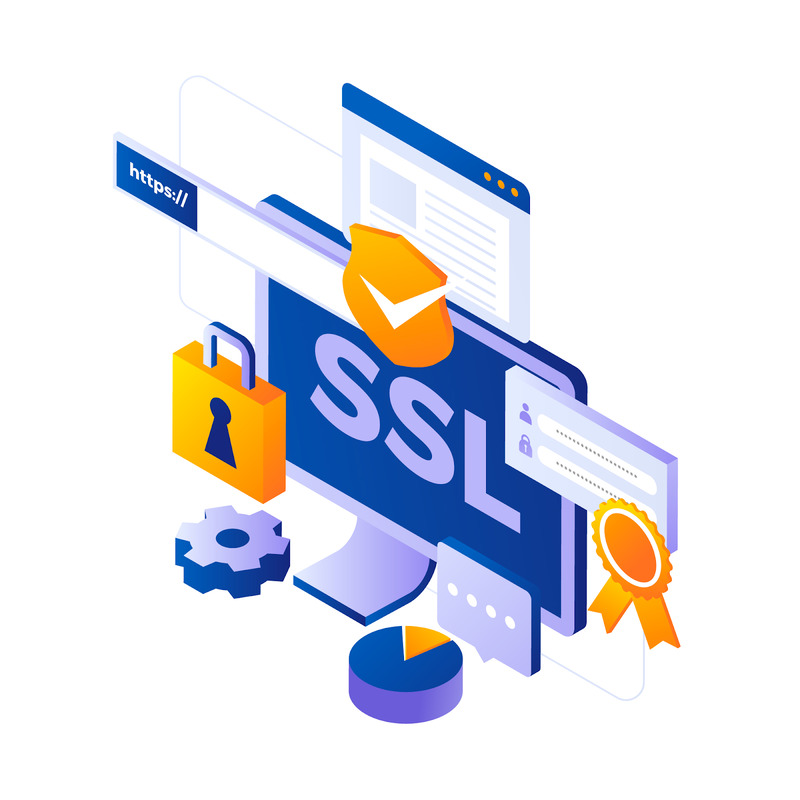
Securing your website with SSL strengthens the way visitors perceive and trust your brand online. Here’s how it enhances your brand’s credibility:
- Signals professionalism and legitimacy
A secure HTTPS connection shows visitors that your website is adequately maintained and trustworthy.
- Boosts customer confidence in transactions
Essential for e-commerce or any site collecting sensitive information, SSL assures users their data is safe.
- Improves brand perception
Users associate HTTPS and the padlock icon with established, credible businesses, not amateur or untrustworthy sites.
- Reinforces first impressions
SSL creates immediate confidence among first-time visitors, reassuring them that your website prioritises security and cares about user privacy.
- Required for modern web standards and compliance
SSL is often a baseline requirement for meeting data protection regulations or third-party integrations, which adds to your brand’s reliability.
How to Apply for SSL Certificate Malaysia?
Getting an SSL certificate in Malaysia is a straightforward process. Follow these steps to apply:
| Step | Explanation |
| 1. Choose the Right Type of SSL Certificate | Identify whether you need a Domain Validated (DV), Organisation Validated (OV), Extended Validation (EV), Wildcard, or Multi-Domain certificate based on your website’s structure and business needs. |
| 2. Select a Trusted Certificate Authority (CA) or Reseller | Choose from recognised providers such as DigiCert, Sectigo, GlobalSign, or local resellers offering support in Malaysia. |
| 3. Generate a CSR (Certificate Signing Request) | Create a CSR from your web hosting control panel or server. This includes your domain name, organisation details, and public key. |
| 4. Submit the CSR and Required Documents | For DV certificates, only domain control verification is needed. OV and EV certificates require some additional business documentation. |
| 5. Verify Your Domain and Business | Follow the provider’s instructions to complete domain ownership verification and business validation if applicable. |
| 6. Install the SSL Security Certificate | Once issued, install the certificate on your web server via cPanel, Plesk, or with your hosting provider’s assistance. |
| 7. Update Your Website to Use HTTPS | Redirect all HTTP traffic to HTTPS, update internal links, and test your website to ensure full SSL coverage. |
| 8. Test and Maintain | Use tools like SSL Labs or Why No Padlock to test your implementation. Renew your certificate before it expires, typically every 1–2 years. |
Want to make sure your SSL setup supports a high-performing website? Check out this guide on building a successful business website to align your security and strategy.
Conclusion
SSL certificates are now a standard expectation for any professional website. They protect user data, influence how your brand is perceived, and contribute directly to search performance.
Ready to secure your website and improve your online visibility? At Newnormz digital marketing, we help businesses implement SSL and build SEO-optimised platforms that earn trust and rank higher.
Contact Newnormz today and let’s create a website that your customers feel confident visiting.
